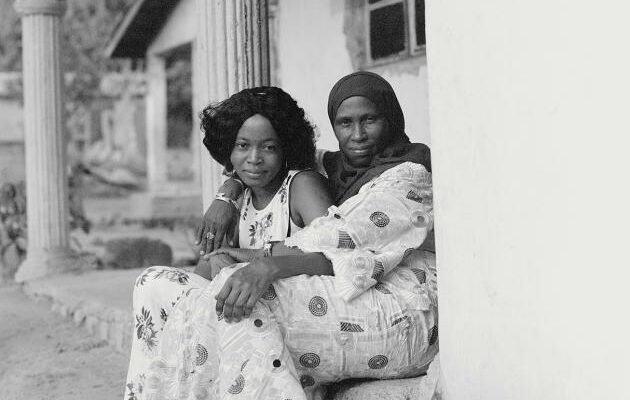In northern Sierra Leone, Aminata, Emma and Zainab are rebuilding. The photos show them, in turn, charming and conquering, tender and loving, joyful and peaceful… These former domestic workers in the Middle East have lived through the hell of human trafficking, forced labor and sexual violence. Back in their country, they found in the city of Makeni a community of women within the association DoWAN (Domestic Workers Advocacy Network).
Its founder, Lucy Turay, a force of nature gone through the same mistreatment, helps them to pick up the thread of their lives, despite the traumas and shame that haunt them. “They become women again. They regain confidence with grace, beauty and strength. That’s what I try to convey, taking care not to forget their suffering.” explains Aline Deschamps. The Franco-Thai photographer met Lucy Turay and several of these women in Lebanon, in the spring of 2020, and made her the subject of a first part called I Am Not Your Animal.
Vulnerable and broken
In 2020, hit by the Covid-19 pandemic, Lebanon is sinking into an unprecedented economic crisis. Domestic workers of foreign nationality are particularly vulnerable, broken by the system of kafala (“guarantor”, in Arabic), which authorizes all abuses. Applied in many countries of the Middle East, this system chains foreign workers to their employer: it is he who signs work permits, authorizes departure from the territory and renews the employment contract, with or without the agreement of the employee, who must reside at home.
In Lebanon, the first trial for slavery opened in 2022, after a complaint filed by an Ethiopian. In the spring of 2020, domestic workers from Africa and Southeast Asia pitch tents in front of their embassies in Beirut to demand their repatriation. They are hundreds to have fled from employers who did not pay them and, for some, mistreated them. Others were fired and thrown into the streets. It was several of them, including Lucy Turay, whom Aline Deschamps met when they were trying to survive, penniless, in an apartment in Beirut.
While some embassies repatriate their nationals, Sierra Leoneans fear they will never be able to return. Their country has no diplomatic representation in Lebanon and has banned all recruitment abroad through domestic worker placement agencies, encouraging the strengthening of illegal networks. Sierra Leone is thus part of the new routes of human trafficking. “Some have contracted debts with smugglers who made them believe that Lebanon needed nurses and that they would earn four times more there than in their country”, explains Aline Deschamps.
You have 46.11% of this article left to read. The following is for subscribers only.
